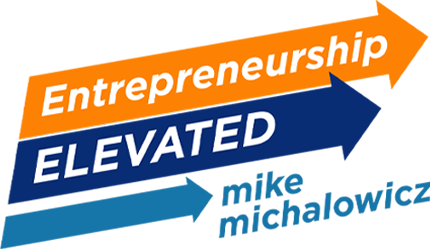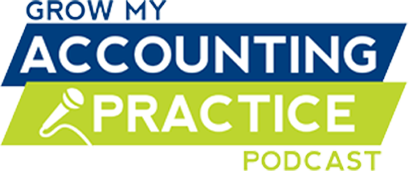So you came up with a brilliant idea. A million dollar idea! But right now, that’s all it is. So how do you turn that concept into cold hard cash?
- Write it down. How many light bulb moments do you have at 2am and then forget come 9am? Or you don’t want your idea to be stolen so you keep it to yourself, promising to chase it when you have time. If you write down every money making scheme you think of, one of them is bound to be the real deal.
- Once you settle on the idea you really want to pursue, write a pros and cons list. What could make it really successful? What could make it a bust? Once you identify the cons – maybe the initial production costs are too high or its a competitive industry – you can find solutions.
- Determine your audience. Who do you think will buy your product or service? Run business surveys to see if there is a market for what you want to sell.
- Figure out what problem you’re solving. All good businesses are solving a problem. Uber eliminated the inconvenience of hailing a taxi and the inability to pre-order them, all for an affordable rate. Apple lowered the cost of technology and made it user-friendly at a time when computers were created for engineers and tech professionals. Solve a problem in the market so consumers can’t live without your product.
- Find a business partner. Although you might want to keep your idea to yourself, remember that it takes two flints to make a fire. Think about the major startup success stories you know. How many of them were founded by just one person? A partner can give you support, share the initial costs and help you decide if your ideas are any good.
- Money, Money, Money. You have to get it from somewhere. If you don’t already have some rainy-day funds to dive into, consider crowdfunding, borrowing from friends, credit cards or loans. Just know the risks you face before getting started.
- Create a financial model. If you want to attract investors, a financial model that forecasts the financial performance of your business will show them your expected profitability and their return on investment. This makes you a more reliable bet.
- Develop your prototype or beta test. Now it’s time to see if your idea will really work. If you’re creating a product, design a prototype so you can work through the kinks of manufacturing. For a service-based company, take on some beta clients who can test it and respond with their feedback.
- Adapt! Prepare to be flexible and roll with the punches. Odds are, your initial idea won’t be the same as the final product and that’s okay. Be ready to respond to what the market wants. You’ll be better off for it.
- Keep on the sunny side. There are going to be boatloads of people who try to tear you and your idea down on your road to success. But as the business owner, you have to stick to your guns. It’s your baby and your investment of time and money, so believe in it.
The next time you’re struck with a big idea, don’t let the opportunity come and go. Follow these steps and you could be next greatest startup success story.











Hi Mike,
Nice blog. Not sure about the partner though. I’ve had a few who have brought in some funds and they always value their money more than the idea and my experience. I would say go it alone or create a vehicle so they only invest in the project and not your primary company. I’ve had one partner embezzle over $100,000 and nothing I could do about it legally (too costly). Then I found another 3 partners who promised to invest $2m but ended up creating jobs for their useless sons and contacts and drained me of energy and time, so much so that I ended up in litigation against them which cost me another 10 years and $350,000. We eventually settled but no one won but the lawyers.
As for determining your audience, my suggestion is to thoroughly test the market and this needs to be taken deep. I invented a natural antimicrobial (a solution to kill food spoilage organisms that costs us money and also kills food pathogens that can give us food poisoning). I even won a National award here in Australia for it. The problem is that reducing food waste, saving the environment and reducing the consequences of getting sick are other peoples’ problems. Few individuals or companies want to make the effort to sanitize their produce as insurance. Some might use preservatives and other synthetic chemicals as part of the poisons they buy on contract eg cleaning chemicals, from Big Harma companies. These usually noxious concoctions that are easy to get regulators to approve as all they want are minimum residual levels determined and reported. My natural product has no residues and is a flavouring itself and so is not easily tested. The Australian Government actually needs to create the legislation to even consider a natural sanitizer. Luckily I have found a few good customers here in Oz, in the USA and New Zealand so the battle continues.
My suggestions in testing the market is to get more than just “what a great idea” response. Pre-sell the product or idea so there is a monetary outcome and value established. Some people seem to be able to sell ice to Eskimoes but I have struggled reaching out to employees who do not want to make a decision they could be asked about later. My estimate is that my product should be an 8-figure earner globally but I have only got it to just under 6.
Everyone has an idea. I actually have an idea that can be bigger then Facebook. Both in revenue from advertising as well as users. I have researched it completely and will be huge for someone with resources. Can’t ask for help cause mentioning anything will give it away.
This was surely a wonderful read. Loved it.
Love it! On my way to success!
I am 21 years old, And I have a innovative idea. I work construction and I’m tired of working 50 to 60 hours a week. My family is in business and I honestly feel like I failed them being that I believe you don’t need a degree to be successful. I have created an idea and a plan for my idea. I am up the creek without a paddle being that every website that exposes your idea to investors so they can give you start up money cost money and I doubt anyone would invest in my idea being I bring home less than $2,000 a month. What do I do?